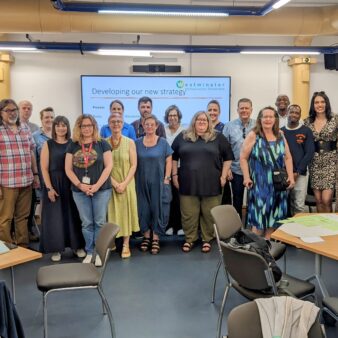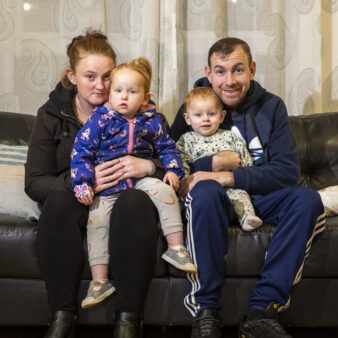The climate emergency presents the largest threat to our vision of a world where everyone has a safe and secure home in a successful community. It is already harming many of the world’s most vulnerable communities and its effects will be felt most acutely by those living in the poorest housing and communities.
If global temperatures continue to rise, the effects we are already seeing – more extreme weather, wildfires, rising sea levels and desertification – will accelerate, threatening biodiversity and ecological systems. Ultimately left unchecked they will threaten the existence of many human settlements and society itself.
Like all organisations, our activities consume energy and generate carbon dioxide and other greenhouse gas emissions. We know we must work in a way that has a positive impact on the communities and residents we work with and preserve the environmental sustainability of the planet, at all levels of our operations. We take our responsibilities seriously and continue to work towards reducing and managing our own impact.
In response to the climate emergency, World Habitat commits to the following.
- Commit to being a net-zero charity as soon as possible and no later than 2030.
- Measure our carbon emissions every year and publish the results.
- Set challenging targets to ensure our carbon emissions reduce each year and follow as rapid a reduction as possible towards net-zero.
- Reduce our actual carbon emissions to as low a level as possible, whilst maintaining the impact of our organisational mission.
- Innovate and challenge ourselves to find better and lower impact ways of achieving our mission.
- Use our influence across the sector as an investor to encourage our partners, our investment managers and beneficiaries to reduce their carbon emissions, and help encourage the transition to a net-zero carbon world across the areas of our work.
- Ensure our investments are aligned with our organisational values and free from activities that lead to environmental degradation – such as fossil fuel extraction – that are incompatible with the 2015 Paris Agreement to limit the increase in global average temperature to 2°C and pursue efforts to limit the increase to 1.5°C.
- Collaborate with other foundations and charities to contribute to wider knowledge about sustainability and reducing carbon emissions.
- Review our carbon reduction plan every three years, to update it with the latest scientific knowledge and good practice with a view to improving our knowledge and transition to net-zero carbon.
- Offset our unavoidable carbon emissions, ensuring that our offsetting investments contribute to our wider organisational mission, moving to an accredited offsetting scheme as soon as possible and in any case by 2030.
While there is no standard definition for net zero, we follow Carbon Trust‘s recommendation of an emissions reduction target aligned to a 1.5ᵒC science-based target and any residual emissions to be permanently removed from the atmosphere via greenhouse gas removal offsets.




